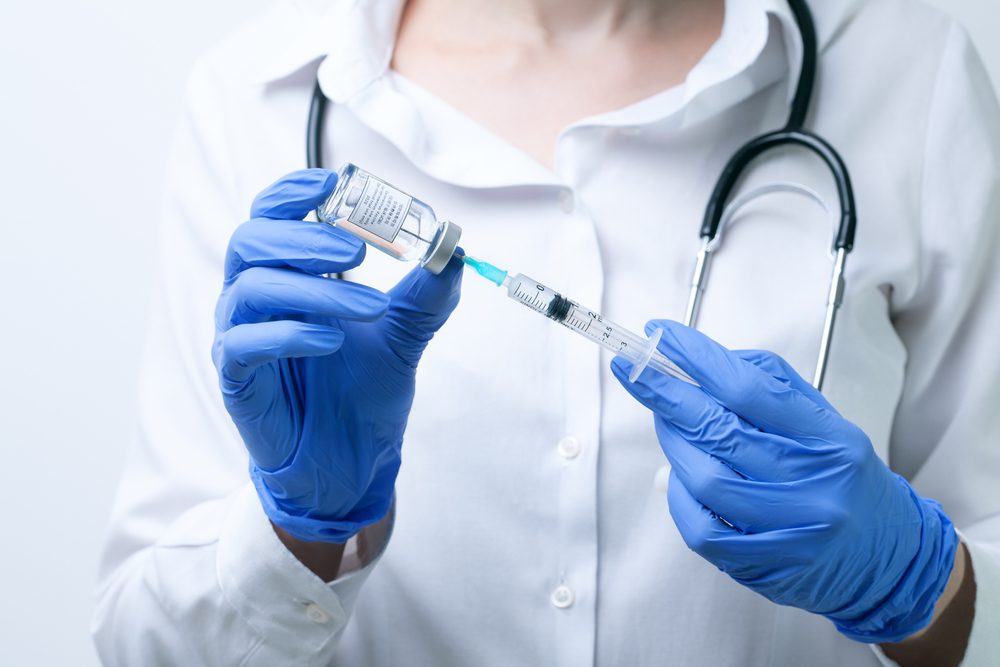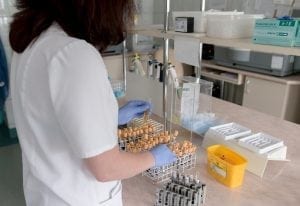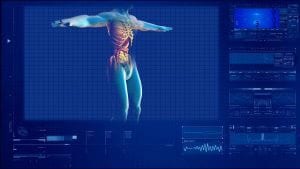Editor’s Note: We believe that patients are a key part of developing and leading the conversation in disease communities. Patient Worthy sometimes partners with reputable agencies that wish to speak with patients about opportunities related to their diagnosed conditions. These opportunities can include activities such as sharing stories with other patients or health professionals about their diagnosis journey or recording video testimonials. To learn more about how to get involved with an opportunity for cancer patients, click here.
According to a story from Inside Precision Medicine, Moderna recently announced a partnership with CARsgen, a Chinese biotechnology company, in order to collaborate on the development of a combined mRNA and CAR T-cell cancer vaccine. In effect, the plan aims to combine Moderna’s mRNA vaccine Claudin18.2 with an investigational Claudin18.2 CAR T-cell candidate from CARsgen (CT041). Then, this combination will undergo evaluation against difficult to treat cancers, starting with a phase 1 clinical trial.
About Claudin18.2
Claudin18.2 is a protein that is expressed on the surface of a diverse array of cancer cells, including pancreatic and stomach tumors. A number of companies are currently in the midst of researching the protein as a potential treatment target, especially for vaccines.
About CT041
CT041 is a CAR T-cell therapy in development for solid tumors, most specifically gastric and pancreatic cancer. The therapy has earned both Orphan Drug Designation and, more recently, Regenerative Medicine Advanced Therapy Designation from the US Food and Drug Administration (FDA).
This partnership will further expand upon Moderna’s efforts to develop cancer vaccines, the most advanced of which is being developed alongside Merck under the designation mRNA-4157.
About Pancreatic Cancer
Pancreatic cancer is one of the most dangerous forms of cancer. The disease affects the pancreas, which is a glandular organ that is situated behind the stomach. Symptoms include depression, upper abdominal pain, jaundice, diabetes, constipation, weight loss, and appetite loss. Treatment approaches for this cancer include surgery, chemotherapy, and radiation therapy. Even with heavy treatment, pancreatic cancer almost always returns. The five-year survival rate is just ten percent. To learn more about pancreatic cancer, click here.
About Gastric Cancer
Gastric cancer appears in the lining of the stomach; gastric adenocarcinoma is the most common type. Symptoms of the disease include heartburn, abdominal pain, appetite loss, fatigue, weakness, bloating, vomiting, weight loss, and jaundice. It often does not cause symptoms in the early stages, so many patients are diagnosed with advanced disease. Treatment for this disease includes surgery, chemotherapy, radiation, and targeted therapies. The five-year survival rate in the US is only 28 percent. To learn more about gastric cancer, click here.
Editor’s Note: We believe that patients are a key part of developing and leading the conversation in disease communities. Patient Worthy sometimes partners with reputable agencies that wish to speak with patients about opportunities related to their diagnosed conditions. These opportunities can include activities such as sharing stories with other patients or health professionals about their diagnosis journey or recording video testimonials. To learn more about how to get involved with an opportunity for cancer patients, click here.






